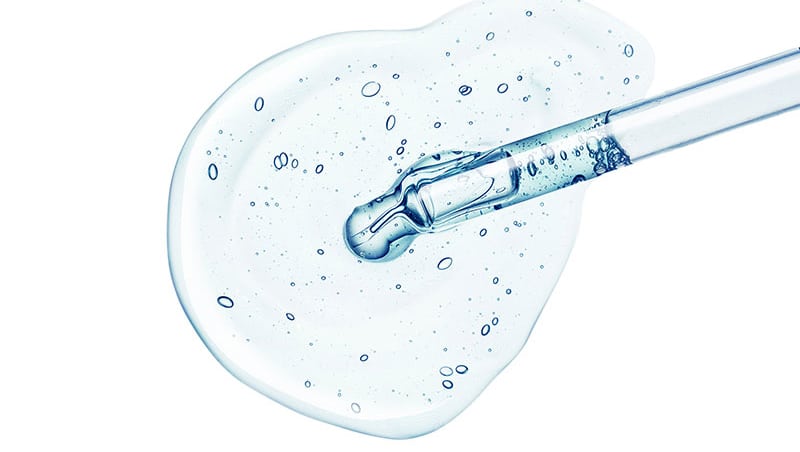In a world where skin health is paramount, hydration stands as a cornerstone. A well-hydrated skin not only exudes a natural radiance but also possesses the resilience to combat external aggressors. Amid the myriad of skincare ingredients, one has emerged as a true hydration superhero: hyaluronic acid. This clear, gooey substance, abundantly found in our bodies, has become the ultimate ally in the quest for supple, glowing skin.
Understanding Hyaluronic Acid
Hyaluronic acid, often referred to as HA, is a natural molecule found in various parts of our bodies, including the skin, eyes, and connective tissues. Its primary role is to retain moisture, making it a vital component for maintaining the hydration levels of our skin. Despite its name, hyaluronic acid isn’t an exfoliating acid; instead, it’s a moisture-binding humectant that offers a spectrum of benefits.
How Hyaluronic Acid Works
Picture hyaluronic acid as a magnet for moisture. Its exceptional ability to attract and hold water molecules is what sets it apart. When applied to the skin, HA creates a reservoir of hydration, plumping up the skin cells and diminishing the appearance of fine lines. Moreover, it forms a protective barrier on the skin’s surface, safeguarding it from moisture loss and environmental pollutants.
Benefits for Skin Hydration
The beauty of hyaluronic acid lies in its versatility. It caters to all skin types, from dry to oily. For dry skin, it offers intense hydration that banishes flakiness and tightness. On the other hand, it’s non-comedogenic nature ensures that even oily or acne-prone skin can benefit from its hydrating prowess without clogging pores. The result? A complexion that’s balanced, nourished, and visibly rejuvenated.
Incorporating Hyaluronic Acid into Skincare Routine
Introducing hyaluronic acid into your skincare routine is a breeze. Begin with a clean face, and while your skin is still slightly damp, apply a hyaluronic acid serum. The dampness aids in locking in the moisture, maximizing the effects of the serum. Follow up with a moisturizer to seal in the hydration. Remember, consistency is key – regular usage ensures your skin remains plump and hydrated.
Choosing the Right Hyaluronic Acid Products
Not all hyaluronic acid products are created equal. When selecting a product, opt for a serum with a concentration of at least 1% hyaluronic acid. This ensures that you’re reaping the full benefits of this hydrating powerhouse. Look for additional ingredients like vitamin C or niacinamide, which complement HA’s effects. Always patch test new products to avoid any potential allergic reactions.
Addressing Common Misconceptions
It’s time to debunk some myths surrounding hyaluronic acid. One common misconception is that it’s only suitable for mature skin. In reality, HA’s hydrating abilities are beneficial for everyone, regardless of age. Additionally, those with oily skin may worry that it will exacerbate shine, but HA’s lightweight texture won’t weigh your skin down.
Potential Side Effects and Precautions
While hyaluronic acid is generally safe for most skin types, some individuals might experience mild irritation or redness upon initial use. To mitigate this, start with a lower concentration and gradually increase frequency. If you have sensitive skin or are prone to allergies, consult a dermatologist before incorporating new products.
Hyaluronic Acid vs. Other Hydration Solutions
Comparing hyaluronic acid to other hydration solutions, it stands out due to its unique ability to hold up to 1000 times its weight in water. Glycerin and ceramides, while effective, don’t match HA’s capacity for moisture retention. This makes hyaluronic acid a game-changer in the world of skincare.
Hyaluronic Acid in Dermatology
Beyond its role in skincare, hyaluronic acid finds applications in dermatology treatments. Dermal fillers containing HA are used to address wrinkles and volume loss, offering a non-invasive solution to achieve a more youthful appearance. This highlights the versatility and importance of HA in the medical field as well.
Natural Sources of Hyaluronic Acid
While skincare products provide a convenient way to incorporate hyaluronic acid, you can also support its production naturally. Foods like leafy greens, bone broth, and citrus fruits contain nutrients that encourage the body’s synthesis of HA. Adopting a well-rounded diet complements your skincare regimen.
DIY Hyaluronic Acid Masks and Serums
For the DIY enthusiasts, crafting your own hyaluronic acid masks and serums is a creative venture. Mixing a powdered HA serum into your favorite moisturizer or creating a hydrating mask with aloe vera and a few drops of HA serum allows you to personalize your skincare routine.
Real User Experiences
Users across the globe have attested to the transformative effects of hyaluronic acid. Individuals have reported diminished dry patches, plumped skin, and a youthful radiance after consistent use. These real stories serve as a testament to the effectiveness of HA as a hydration booster.
Hyaluronic Acid for All Ages
Age knows no bounds when it comes to hyaluronic acid. Whether you’re a teenager dealing with acne or someone in their golden years combating wrinkles, HA has something to offer. Its versatile nature makes it a staple ingredient for every generation.
Conclusion
In the realm of skincare, few ingredients possess the remarkable hydrating prowess of hyaluronic acid. This natural molecule, capable of retaining moisture like no other, transforms dull, parched skin into a radiant canvas. By incorporating hyaluronic acid into your daily routine, you embark on a journey towards healthier, more supple skin that defies age and weather. So, why wait? Dive into the world of hyaluronic acid and experience the ultimate hydration boost your skin deserves.
FAQs
- Can hyaluronic acid be used on sensitive skin?
- Yes, hyaluronic acid is generally safe for sensitive skin. However, it’s recommended to perform a patch test before applying it to your entire face.
- Can I use hyaluronic acid during the day and night?
- Absolutely! You can incorporate hyaluronic acid into both your morning and evening skincare routines for round-the-clock hydration.
- Is hyaluronic acid suitable for oily skin types?
- Yes, hyaluronic acid’s lightweight texture makes it suitable for oily skin, as it hydrates without clogging pores.
- How soon can I expect to see results after using hyaluronic acid?
- Many users notice an immediate improvement in skin hydration and plumpness, but more significant results might take a few weeks of consistent use.
- Can hyaluronic acid replace a moisturizer?
- Hyaluronic acid provides hydration, but it’s best used in conjunction with a moisturizer to lock in the moisture and create a protective barrier.









